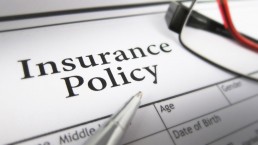BC Strata Insurance Market 2021
BC Strata Insurance Market 2021
While strata housing can range from various dwellings, that include condos, duplexes, and single detached family homes, this type of housing has its own set of unique features. In BC, there are over 1.5 million individuals living in this type of living arrangement, which involves both homeowners and property space, that offers various shared amenities in the community setting.

With that being said, along with these shared amenities, which can in certain cases include, pools, recreation and fitness centres, and shared green spaces, there are of course fees that go along with these types of offerings, including ion course insurance premiums.
While, having the proper insurance is always the best course of action to ensure we are protected when in comes to various financial and personal aspects of our lives, the BC Strata Insurance market has seen an incredible surge in the cost of these fees over the past year. In fact, these figures have reached double and tripled digit percentage margins in only a short period of time.
With strata corporations across BC looking to obtain affordable coverage for their properties, this has proven no easy task as the demand and the costs continue to be high. Some direct causes have been identified by the BC Financial Services Authority (BCFSA), which points out that a recent 10 year stretch of a softer housing market, which then turned quickly into what is know as a hard market. With this now being the reality, many insurers have had to look for ways to meet their profitability margins.
In turn, with less insurers in the game, and more properties to insure, more risk has been taken on, and this has ultimately driven up these prices. Claim costs have also risen and this has led to more insurance fees throughout the Strata Market.
With current premium and deductible insurance fees somewhat levelling out, this still does reflect higher levels than ever before. Now with only a little over a month into 2021, there is no sign that these fees will be decreasing any time soon.
Fortunately however, some necessary steps have been outlined as a way of improving these conditions. The BC Government has outlined some key areas that need to be taken into account when looking to regulate the procedures used to guide strata corporations. With the current high costs that strata members are facing when paying for insurance, this key issue is also at the heart of these new regulations.
While best price quotes are one of these necessary changes that should be addressed to bring down these premiums, it is still the costs associated with home-related insurance claims that have been identified as the bigger culprit. By bringing these down, it is suggest by the BC Financial Services Authority (BCFSA), the Strata Insurance market should thankfully experience some more affordable prices in the future.
At Leaders Insurance, we provide home insurance policies that match the homeowner’s needs. Reach out to us to find out more about the home insurance coverage that will be the most suitable and affordable fit for you.
Winter Home Checklist for 2021
Winter Home Checklist for 2021
With winter already in full swing in Canada, it isn’t too late to take the necessary steps to winterize your home.Here is a Winter Home Checklist for 2021 to help you ensure your home is well guarded from the winter elements this year.

Checking Your Heating Systems
Of course, you may have already done a heating system check prior to the really cold weather, however it is a good plan to do this again. It is not too late to check that you have not left anything out, as well as re-check these systems for any other signs of maintenance that may be required.
First and Foremost, if you have an outdoor air conditioner, you will want to make sure it is being protected while not is use. Your air conditioner unit should be kept clear of any leaves, branches, sticks, etc. It is also recommended that you place a cover over it to protect it, in particular the heating coils. from any moisture that can accumulate from the snow or ice.
Maintaining the Furnace & Fireplace Components
Moving onto the heating unit themselves, there are some steps you can take to ensure these are in working condition, in order to support the needs of your home during the winter months. When it comes to your furnace, it is recommended that you have a professional examine and the filters. Secondly, if you have a fireplace in your home, this will also need to be inspected prior to use each year. At the same time, heat vents should be checked for any blockages as well as this can mean that the heat is not effectively making its way into the proper parts of your home.
Examining Smoke & Carbon Monoxide Detectors
Additionally, at the top of the list should be the inspection of smoke and carbon monoxide detectors. This is so that you ensure they are doing their job effectively and keeping you, your loved ones and your home, safe.
Overall, the goal here is to make sure that when you are relying on all of these various heating systems, they are in fact, working as they should, while also ensuring you feel safe and secure in your own home.
2) Inspecting Windows and Doors
Also, a key element is keeping your home warm during the winter is the task of inspecting all doors and windows. This step also helps support the effective heating of your home, whereby ensuring that excess amounts of heat are not being lost to the outdoors.
Some specific aspects to look for include, checking that the weather stripping around the doors and window frames are not showing any gaps or signs of wear and tear. If you do identify this type of damage, it is best to repair it as soon as possible, so that you don’t have to suffer with unnecessary drafts as well as major heat loss in your home this winter.
3) Preparing Machines and Procuring other Winter-Related Necessities
In addition to prepping your house itself, you also need to remember to have your necessary winter gear on hand. These can include snow shovels, snow blowers, ice scrapers and snow brushes, and of course, ice. Having these items within reach will really save you in a pinch, when you are rushing to get out the door and also on your way to any one of your essential destinations.
You will also want to stock up on items like food, water, batteries, and flashlights, etc. as it is helpful to have these at your disposal, in the event that travelling is not an option, and also in the case of a power outage.
With winter weather in Canada being unpredictable as times, it is best to be as prepared as possible in order to deal with the demands of the season. Not only will you and your family be safe, your home will be as well.
With both your financial and your loved one’s well-being in mind, you can also look to home insurance as a key element of your winter home preparedness plan.
Reach out to the Leaders Insurance team to learn more about our services, and to find a home insurance policy that will best meet the needs of you – and your home as you look ahead to another season.
The Digital Future of Insurance
The Digital Future of Insurance
While for some time now businesses have been taking steps towards utilizing more technology in their day to day operations, it is also true that the pandemic and the various restrictions placed on Canadian businesses has made quite the case for the need to become more digitalized in a variety of ways.As a result of the events of the past year, insurance companies have also began to look further ahead to the necessity, as well as the efficiency of offering a wider range of digital services.
Let’s take a look at the digital future of insurance and some realities that are anticipated as this industry also leans into own technological evolution.
Online Collaborative Resources
One of the main ways that business have taken steps towards digitalized services involves using resources that enable online collaboration. By now you are likely more familiar with video call tools such as Zoom and of course email and other online messaging services have been in use for sometime. However, another method of virtual collaboration that is gaining more traction are services that allow for employees to collaborate not just with each other, but also with their clients.
For example, insurance companies have started to rely more heavily on applications that allow for documents to be completed and processed virtually, and one of these main tools includes smart documents and e-signature capabilities. This not only can help with efficiency, but during times when it isn’t possible to have in-person contact, these services can still be offered and as a result, the insurance needs of clients can continue to be fulfilled.
Self-Service Tools
Another avenue that companies have pursued in order to set up their digital approach to business is through the use of self-service tools. Again, in order to counteract the necessity for restricted in person services, businesses have moved towards using self-service portals and mobile apps to provide continuity and accessibility to customers on a broader scale. Through digital methods like these, insurance clients avoid the need to only be able to move forward with their insurance policy changes when only limited to reaching an insurance broker directly by phone or email.
As such, insurance brokers can effectively serve their clients and in turn, clients also have more ease and flexibility with regards to how and when they manage and access their insurance policies or other related services.
The Cloud
The Cloud, perhaps one of those technology pieces that although has been around for quite sometime, not everyone has found the time to gain a completed understanding of what it does exactly. In fact, many individuals are already using it in their daily lives without full awareness of its range of benefits.
Fortunately, Cloud technology has the ability to enable businesses to stay connected when using a broad range of devices, so that they can also provide more efficient costumer support and continuity of services. With the reality that employees are more likely to work from home or work remotely from different locations, businesses can still run smoothly without the need for everyone to be in the same place at the same time.
From an insurance perspective, this scenario also most certainly applies. Digital aspects of the Cloud can also help to protect insurance documents and the loss of information. Due to the strong nature of its data security, insurance companies can rely on the Cloud for storage, accessibly and protection of their insurance files; and in turn, clients can also rest assured that this information is kept safe with the help of this existing technology.
As insurance companies continue to be committed to serving the needs of their clients, the future prospects of incorporating more digitalized options can help them to rise up and meet these needs through a variety of unique and effective ways.
Contact Leaders Insurance to find out how we can help you manage your insurance policy needs, while both safety and efficiency remain at the forefront of our business goals this year.
What Precautions do We Need to Take as Homeowners as the Winter Approaches
What Precautions do We Need to Take as Homeowners as the Winter Approaches
As a homeowner, there are many responsibilities that require your attention all year round. With that being said, there are also some important aspects of homeownership to consider as we prepare for the typically-long and chilly Canadian winter months.Here are some precautions you can take to prepare your home for the winter season.

Check your Roof
First of all, a well-maintained roof will be very important under varying winter conditions. Whether you are having your roof inspected by a professional or you are doing it yourself, it is commonly recommended that you inspect it at least twice a year. With that said, when examining the roof, some key signs to look for include, any loose or missing shingles or any other wear and tear you can notice. Having these areas replaced prior to the winter is best, as sleet, ice, and snow can all lead to further and more expensive repairs down the line.
2. Clean your Furnace (Chimney & Fireplace)
The heating systems you rely on during the colder weather should also be taken into account when preparing for the winter. Having your furnace cleaned, including the filters replaced regularly will help to ensure your furnace will be working properly, especially when keeping up with the demands of the cold temperatures. It is also suggested that you have your furnace assessed each year by a professional as this can give you more peace of mind that your home will be well-heated during this winter.
Additionally, it is just as equally necessary to have your fireplace and chimney cleaned regularly and again, definitely before the colder weather arrives. In the case of a chimney, it is important to check that it is not blocked by any debris. A professional is also best suited to come in and check that your gas fireplace and/or wood fireplace are in working order and that you are safe to begin using it to help heat your space.
3. Secure Windows & Doors
Prior to winter, it is also best to check your windows and doors for any potential drafts. You can take steps to add more caulking and weather stripping to these areas to help fill these gaps. By making sure there are no openings around doors and windows, this helps to ensure that the heat is not escaping and instead, remaining inside your home where it belongs.
4. Store Outdoor Furniture
If you haven’t already done so, it is also a good idea to put away any of your outdoor furniture and other items. While some items, for example those made of metal, can be stored outside during the winter, you should still consider covering them and protecting them from the harsh winter elements. Other outdoor items, such as wicker and plastic patio furniture should be kept indoors whenever possible, as these materials will not hold up well when coming into contact with ice and snow. Taking steps to protect these items will mean that when the warmer seasons return, you can continue to enjoy them again, without needing to spend additional money to have them replaced.
5. Have Winter Supplies on Hand
Last, but not least, having the necessary winter gear on hand will also be an important part of your winter home readiness plan. With Canadian winters being somewhat unpredictable at times, it is best to have theses supplies at the ready, so you can muster through the winter season without scrambling to go out and purchase these items at the last minute.
Depending on what province and region you are living in, it is important to have the right winter gear on hand. For starters, having trust snow shovels and winter salt are a good place to start. If you are driving regularly this winter, then you will also want to have de-icer, snow brushes and scrappers to help prepare your car for safe winter driving. In the event, we have ‘snow days’ and are not able to leave the home, having some extra food stored and household supplies on hand, can also be highly beneficial during the winter months.
Finally, the proper home insurance will also help! In the event, there is any damage to your home, with the right insurance, you can rest assured that you are protected from any added future home repair-related expenses.
Contact Leaders Insurance to find out more about our home insurance policies, while helping to make sure you and your home are well prepared to cope with the wintry conditions that await us once again this year.
5 Things You May Not Know about Insurance But Should
Insurance isn’t something any of us really want to think much about and most of us dread purchasing it. However, it is an essential part of most things in life whether that’s when we buy our first car, first home or start thinking about the future. So instead of burying your head in the sand around insurance, it’s important to learn as much as you can about it so you can optimize the policies you acquire and find the best quote for your needs.
Here are 5 things you may not know about insurance but should –

1.Insurance is a key element to protect yourself against financial ruin.
Insurance is a strange investment in that people pay for it, but hope they’ll never need to use it. Insurance may seem like a waste of money for young adults beginning their careers, but this investment may be the one thing that protects them against financial ruin for the rest of their lives. Insurance is an important investment to protect your future, and you should look for insurance that protect yourself against the risk of financial ruin at the lowest cost possible.
2. Long-term disability insurance is a key investment whether you are young or older.
If a person becomes sick or injured and is unable to work for a period of time, long-term disability insurance protects them against loss of income. Young people just starting their careers may not have much money saved yet, but they rely on their current and future incomes, so long-term disability insurance helps them protect that income and their futures.
3. Renters should purchase insurance.
When you rent a home we often fill it with belongings that are important and valuable. These contents should be insured. Renters insurance is a comprehensive way to protect all of your belongings in the event of theft or damage, and often protects these belongings both inside and outside the home. When purchasing renters insurance, it’s important to have your property and belongings appraised every year to ensure proper coverage. Individuals can purchase renters insurance through insurance companies.
4. If you need to make a claim, think of additional costs you may have to incur – your insurer may provide coverage for this.
It is important that when a claim is being raised that we fully understand what is covered under your insurance policy. For instance, if you are displaced, the insurer will likely find you and pay for accommodation while work is being done to restore your home. However, if you have any pets, there may also be coverage to keep your pets in a safe shelter until it is deemed safe to return back to the property. By identifying these details, you can save yourself money and find peace of mind through your investment in insurance.
5. There is often more flexibility in policies than you think to help you reduce the cost of insurance.
If you receive a quote that is higher than you believe you can afford, it is important to voice this to your insurance agency. While they may not be able to reduce pricing in all instances, there is often ways they can reduce the premium if you assume a bit more risk. By being clear on what level of risk you are willing to accept, will help you to find a premium that is fair and offer appropriate coverage for your needs.
One of the most important factors of insurance is finding an insurance agency that you can trust. At Leaders Insurance, we pride ourselves on our exceptional reputation across BC. Get in touch with us today to learn more!
In the Market for Security Services Insurance?
In the Market for Security Services Insurance?
Insurance for a security company in Canada is a specialized area of commercial insurance. Providing a quote and offering insurance considers the unique business liabilities that come along with it.

Why does a security company need insurance?
The standard commercial general liability policy that your typical retailer or business owner would have does not meet the needs of a security company as it contains a number of exclusions that are extremely problematic and also doesn’t include professional liability which is critical for a security company.
Examples of important coverage considerations for security companies include:
- The typical care, custody and control exclusion not being applied to property that is being protected
- Broadening of the personal injury extension to include coverage for false arrests, invasion of privacy and/or discrimination
- Failure to perform exclusion removed
- Intentional injury caused to others in defence of property or persons is not excluded
- Liability for loss or damage to property of others that is being protected is not excluded
Finding specialized insurance for a security services company –
- Insurance for alarm monitoring operations and call centres
- Insurance for investigate services
- Insurance for locksmiths
- Insurance for security guards including stationary, mobile and emergency response
- Insurance for armoured car companies
- Insurance for security product manufacturers
- Insurance for security system installers and/or access control professionals
- Insurance for security training facilities
- Insurance for sprinkler design and installation companies
- Insurance for event security, doormen & bouncers
How Much Is Insurance for A Security Company In Canada?
The simple answer to that is that it all depends. There are so many types of security companies across the county that insurance premiums range dramatically. The price all depends on the annual revenue and type of work being done. The best way to find out how much is insurance for your security company is to get in touch with an insurance agency today. At Leaders Insurance, we take the time to explain the various coverage options that are available to you.
Can you get insurance if you are a security guard?
If you are a security guard, you are one of many in a field that is only growing. When it comes to insurance, security guards are in a unique situation. Some security personnel may have insurance that is provided to them by their employers, while others may have to seek insurance that fully protects them in their line of work. Security guards face risks that others in the workforce do not; the very nature of their jobs puts them in dangerous situations, which could impact their insurance rates.
Insurance policies security guards may need
As a security guard you have a certain amount of professional liability. Your occupation is inherently riskier than most, since you are tasked with protecting property, a business, or people from harm. You may be static or mobile, serving as a bodyguard, or simply being a presence in a location just in case of emergency.
Whether you are purchasing your own insurance or are under an employer’s policy, as a security guard, you should make sure you are covered for various risks faced on the job. Consider insurance policies that include the following components:
- Automobile insurance
- Professional liability insurance
- Life insurance
- General liability insurance
Security Guard Insurance Coverage for Independent Contractors
If you are an independent contractor, you may have to find your own insurance in order to be financially protected while on the job.
Two important insurance policies to keep in mind as a security guard are property insurance and general liability insurance. When taking care of a building or business, property could be at risk of vandalism or burglary. General liability insurance and professional liability insurance could protect a security guard against errors in their reports as well as situations they have no control over that result in damage or injury.
- General liability insurance. This provides protection against liability that may arise over the course of employment. Guards are often asked to write down what they did and saw in comprehensive shift reports, but eyewitness accounts of accidents or even routine events can be faulty.
- Professional liability insurance. This provides coverage for situations where inaccurate advice was given, a guard was negligent in their duties, or a situation was misrepresented.
- Property insurance. This protects the area in question if a guard isn’t able to secure the site or is unable to prevent an act that causes damage to the property.
- Automobile insurance. This helps protect the vehicles a security guard may drive during the course of their job.
Whether you are a security guard or own a security services company, at Leaders Insurance, we can help you find the right insurance for your needs. Get in touch with us today!
What is Overland Water Coverage?
What is Overland Water Coverage?
We live in BC and BC gets a lot of rain every year – some more than others. More and more, we are seeing flood claims come through and it’s important to understand what you are currently covered for and what you aren’t.As RateHub highlights, overland water does not come standard, and it could be the most valuable add-on to your home insurance policy. Floods have surpassed fire in Canada and now rank #1 in terms of property damage. Floods are also the most expensive natural disaster – having cost more than $20 billion in damage between 2003 and 2012, according to the Government of Canada.

An overland water endorsement on your home insurance policy protects you and your home from particular water damage risks. An overland water endorsement on your home insurance policy gives you protection from rising rivers, streams, or other bodies of water that may overflow onto dry land causing damage to your home. It can also protect against heavy rain precipitation, or snow accumulation, and its eventual thaw, around your property.
When you need to consider overland water protection
In particular if you have a finished basement – drywall, laminate flooring, and furnishings – overland water insurance is a smart thing. Without it, you may be left dealing with the bill on your own.
Will overland water affect you?
Severe weather damage claims are on the rise with major floods representing almost 40% of all natural disasters in Canada, according to Aviva Canada. If your basement isn’t waterproofed, your eavestroughs and downspouts need repair, or you have cracks in your foundation, it could be worth adding it to your current house insurance policy or when shopping around for new home insurance quotes.
What overland water coverage does not protect
There are several types of water insurance coverage for your home, and it’s important to understand the differences when searching for your home insurance. Often, some base home insurance policies have coverage for burst pipes, whereas you may need to add it with other policies. Base water coverage is not overland water coverage. In some cases, overland water coverage is called groundwater coverage.
No matter how you choose to protect your home, make sure you understand all there is to know about the various add-ons available to you. With the risk of flooding in BC at a high level, it’s important to protect your assets by purchasing the right level of insurance. At Leaders Insurance, we take the time to explain the various coverage options that are available to you.
The Benefits of Boat Insurance
Benefits of Boat Insurance
Summer is only a few months away and one of the most important things you can do for a worry-free summer on the water is to have boat insurance.
Boat insurance is not legally required but is always a good idea; marinas and inland waterways require you to have it. Your home insurance usually has limited coverage for a small, non-engine powered watercraft. Engine-powered watercraft and larger boats and are generally not covered by home insurance. It is not enough to protect your investment or cover your costs in case of any liability issues. Boat insurance is available as an add-on to your home insurance.

Why do you need to insure your boat?
You need boat insurance because it covers:
- injury to others and damage to their property.
- Loss of or damage to personal property on your boat.
- Unexpected damage to your boat from an accident like striking a submerged rock and recovery costs if your boat sinks.
In order to determine how to insure your watercraft, your insurer will need to classify it. Boats are often insured by the length of the boat as well as by its type – fishing boats, sailboats, cruisers and motorboats. Once this is done, your insurer will then be able to work up a quote for you.
Types of coverage
You can choose to cover only injury to a third party or damage to their property or to cover almost every possible type of loss. You should also cover damage to your boat and standard boat insurance also provides death benefits, medical benefits, and coverage for personal effects.
Liability
The most important reason for getting boat insurance is liability coverage. It protects you in case someone is injured, or their property is damaged and pays for your legal fees, their medical expenses, and repairs to their property. This is the minimum type of coverage you should have.
All risk
You may also need coverage to your boat from fire, accidents, and theft. All risk insurance covers anything that can happen to your boat except for circumstances specifically excluded in your policy, such as wear and tear and damage from freezing.
Insuring your boat is a must so as we head towards the summer season or if you’re about to purchase a boat, make sure you contact us for a competitive boat insurance quote. Happy Boating!
4 Ways Insurance Can Help you as an Entrepreneur
4 Ways Insurance Can Help you as an Entrepreneur
You have a good idea, you get your ducks in a row and then you’re ready to launch your new business idea out into the public domain. Being an entrepreneur puts you in control of your destiny, but there are major costs that go along with being the boss. With licences, office rent, and staff payroll to deal with, purchasing insurance may feel like just another thing that needs doing.

However, insurance should be taken seriously – especially by entrepreneurs. Now that you’re the owner, you’re the one left responsible when things may go wrong. Protecting your new business venture with an insurance plan outweighs the costs of any disaster.
Here are 4 ways insurance can help you as an entrepreneur and give you peace of mind when you least expect it –
Protecting your business facilities
Commercial property insurance provides protection for your workplace, from the building itself to the contents inside it. So, if you operate out of an office, factory or warehouse, you’re safeguarded from damage at the hands of disasters like fire, or water damage resulting from a burst pipe. As well, if someone breaks into your facility, the insurance will cover any necessary building repairs and security upgrades, and can help with the cost of replacing stolen equipment or goods.
Insure against cyber crime
As mentioned on our blog, the threat of cyber crime continues to grow. An enterprise’s online presence can be just as vulnerable to thieves as their office space. A cyber attack could uncover confidential information, potentially putting the finances and personal data of your clients––and your company––at risk. As an entrepreneur, you have a brand to protect and insurance will help you minimize the impact on your online operations and your digital reputation.
Cover the cost of going to court
You may think that going to court only happens to companies that do bad things. However, it’s a lot more common than you think. Whether it’s a customer making a slip and fall claim or a client saying you’ve broken the terms of your contract, a lawsuit could potentially put you out of business. The cost of going to court could bankrupt you. There are different types of liability insurance. General liability covers bodily injury incurred at the premises, while professional liability protects in case of negligence or errors causing bodily harm or financial loss.
Maintain operations in a disaster
If disaster strikes, you want to be able to minimize the impact on your customers and your business. By purchasing insurance, you can safeguard yourself and enable your business to continue its operations. Depending on your industry, this may also set you apart from other competitors who have not taken these steps to insure their businesses.
There’s always a risk to being an entrepreneur but you can always add safeguards to these bumps in the road. Protecting your company with an insurance plan ensures that you’re running smoothly on even the most unpredictable days. To learn more about how we can protect you as an entrepreneur, contact us.
Happy New Year! Are your insurance renewals up-to-date?
A New Year brings a clean slate of sorts and it’s time to setup the year for success. Whether you are a business owner, own a property or drive a vehicle – it’s important to check that all your current insurance policies are up-to-date and take note of when they are up for renewal. January is a perfect time to plan for the year head and we are here to help you through it.

What is an insurance renewal?
An insurance renewal is the standard length of time an insurance policy is in effect without an insurance company adjusting your rate. Of course, there are exceptions to every rule, and it is possible – on rare occasion – for your rate to change shortly after purchasing a new policy if you do not meet underwriting guidelines.
When Does an Insurance Policy Renew?
The renewal date of your insurance policy is based on the date your policy took effect. So, it could actually take place on any day of the year depending on when you originally started the policy. The other factor in determining your renewal date is the length of your policy period. Policies usually renew annually or semi-annually. The start of the year is a perfect time to take stock of when these renewals are coming due so you can plan ahead.
Renewal information is usually mailed or emailed to you 45 to 30 days in advance of your renewal. You will receive a declaration page along with other information explaining your policy. A new proof of insurance is usually enclosed with the declaration page.
What Should I Do When My Insurance is Close to its Renewal Date?
Look at your existing rate and see if you qualify for any further discounts. When you get your renewal reminder, this will help prompt you to do this review as sometimes insurance is easy to forget if you haven’t had the need to use it recently. It is a good time to contact your insurance agent to review your policy.
Why Insurance Rates Can Go Up
It is possible for every person insured with a given carrier to have a rate increase. Insurance rates can rise due to increased claim activity. If an insurance carrier is losing money, rates can increase. Also, if there appears to be a higher level of risk, an insurer will increase the value of the insurance on the policy to protect them from further exposure. Insurance policy renewals are a standard part of insurance. All policies renew and insurance companies have the ability to recalculate your insurance rate. Use this time of year to mark your renewal dates in 2020 so you know when to review your policy and think about possible changes.
Find an Insurance Broker that has a large network
When looking for insurance coverage, you want to partner with an insurance agency that has access to a wide network of insurers. This is key to getting the best coverage and the most competitive rates.
At Leaders Insurance, we can often source competitive insurance coverage where other agencies can’t. Our team has a wealth of expertise and we service clients not only in the Tri- Cities but also across the Lower Mainland and BC as a whole. As you plan out your year, please feel free to reach out to us so we can provide you with a quote for all your insurance needs. Let’s make 2020 your best year ever!
Let’s make 2020 your best year ever!
3 Top Ways to Find the Best Insurance Rate…and shopping around isn’t the only one
Many of us look at insurance as just an added expense – something we won’t really need UNTIL we do. Whether you are insuring your home, car or business, you know that you need to invest the time into finding the right insurance for your needs but also so you can find the best rate.

It’s true – dozens of insurance companies, large and small, are fighting for your business. Many agencies have a wide range of policy options, making it hard to compare policies and figure out who’s offering the lowest rate.
Many people think that the best way to find the lowest rate is to shop around. While that can be important and it’s something everyone is likely going to do anyway, we want to help you improve your chances of finding the best rate for your needs.
Here are 3 tips to find the best rate as you search for insurance:
Ask about discounts
Insurers provide a variety of discounts, which can mean lower insurance rates for customers who may bundle one insurance with other policies. This can include combining vehicle and homeowner insurance. Discounts may also be available if you are able to pay your entire annual premium at once so be sure to specify this when requesting a quote. It could save you money.
2. Raise your deductible
Often if you are willing to accept a higher deductible on claims, you can save money on your actual insurance premium. Before you accept a higher deductible, make sure that the amount you are agreeing to is something you can manage to pay in the event that you will need to file a claim on your insurance. Having this option can help you reduce your variable costs over time, especially if there is a low likelihood that you will make a claim on that particular insurance.
3. Dig into the details
Depending on the type of insurance you are purchasing, you should take a close look at the details of the policy. Some elements of the policy may not be required and you could be paying for additional insurance that doesn’t really apply to you. At Leaders Insurance, our agents take the time to understand your unique needs so we can provide you with a policy and quote that applies directly to your needs. However, if you are working with an agent and you feel that the policy includes a number of elements that don’t apply to you, you should ask if there are other alternative policies that may omit these elements so you are able to get a lower rate while still giving you the coverage you need.
Often when we purchase or renew our insurance policies, we are looking for it to be a quick process. While it is important to find an insurance agent who can work quickly, it is also important that you find the best rate for the coverage you need. By following these 3 top tips, you should be better positioned to find a great rate from a trusted, insurance agent.
If you’re looking for an insurance quote at the moment, consider getting in touch with us today. We’ll help you through the process and find you the best rate and coverage through our team of insurance experts!
